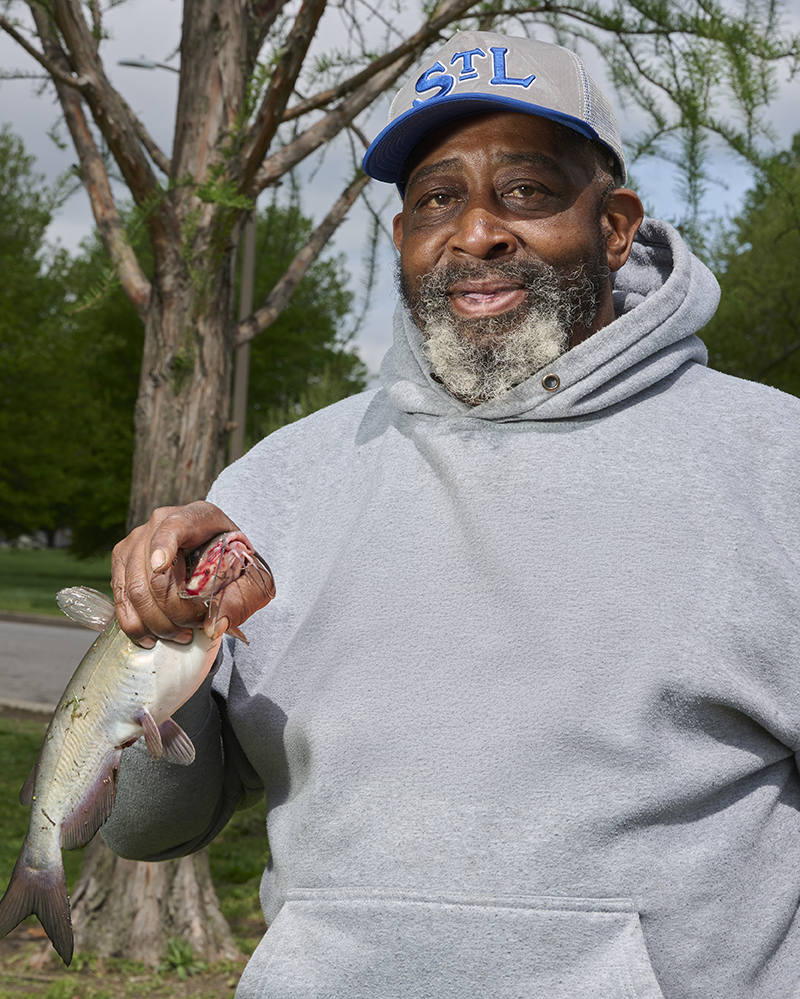Jason Broomfield, 61, a St. Louis Metro Link security guard, had always been nervous about hospitals and needles. But when Jason began experiencing difficulty breathing and unbearable stomach pain, he was left with no choice. He headed to the Christian Hospital Emergency Department to get answers.
While there, Jason had a CT scan that revealed an abdominal aortic aneurysm—a swelling in the abdominal section of the aorta, the body’s main blood vessel. This happens when artery walls weaken and expand, which can lead to a rupture and life-threatening internal bleeding.
Jason needed surgery urgently, but because of the complexity of his case, he was referred to Linda Schulte, MD, a cardiothoracic surgeon at Missouri Baptist Medical Center, who specializes in aortic surgeries. This would be Jason's first-ever surgery—and he would also be one of the first patients to have a procedure in Missouri Baptist's new hybrid cardio-thoracic operating room (CTOR).
 In January, Missouri Baptist opened the hybrid CTOR, a high-tech surgical space that combines a traditional operating room with advanced imaging technology, allowing physicians to perform complex procedures with greater precision and less risk. The hybrid CTOR combines the strengths of the CTOR and Cardiac Cath Lab teams to use leading-edge technology and deliver the best possible care to patients. To reduce the size of his arteries, Jason was initially going to have open-transabdominal surgery, a high-risk procedure. However, the advanced imaging and surgical capabilities of the CTOR allowed his medical team to take a different approach.
In January, Missouri Baptist opened the hybrid CTOR, a high-tech surgical space that combines a traditional operating room with advanced imaging technology, allowing physicians to perform complex procedures with greater precision and less risk. The hybrid CTOR combines the strengths of the CTOR and Cardiac Cath Lab teams to use leading-edge technology and deliver the best possible care to patients. To reduce the size of his arteries, Jason was initially going to have open-transabdominal surgery, a high-risk procedure. However, the advanced imaging and surgical capabilities of the CTOR allowed his medical team to take a different approach.
“When Dr. Schulte mentioned surgery, I have to admit I was a little scared,” Jason says. “I don’t like hospitals or needles. But she took the time to explain everything, assured me that it was a safe surgery, and that I was in good hands.”
Instead of open surgery—making a big incision in the patient's body and directly approaching the aorta at the aneurysmal segment—Dr. Schulte and her aortic partner, Joshua Baker, MD, performed a completely endovascular procedure in which thin flexible tubes called stents, are placed into easily accessible blood vessels through a small incision in the skin. The stents reinforce the walls of the normal artery and exclude the aneurysmal segment, which prevents the aneurysm from bursting. This approach also minimizes the risk and significantly improves recovery time.
“Jason’s case was unique because of the difficult anatomy, requiring multiple layers of branching stents
to be placed in the arteries and because the procedure was so complex, performing it the traditional way would have required a lot of radiation and contrast dye—medicine used to make blood vessels visible on X-rays,” says Dr. Schulte.
Too much of this dye can harm the kidneys and lead to a less-than-ideal outcome.
“But with the new OR technology, we were able to create a 3D map of his anatomy using his CT scan—this allowed far less radiation and almost no contrast dye while achieving excellent results,” adds Dr. Schulte. “Thanks to these advancements, he avoided a major open surgery, reduced his hospital stay, and recovered quickly.”
Jason was out of work for four weeks instead of eight weeks if he had open surgery.
“As one of the first patients to benefit from the hybrid operating room, Jason experienced an excellent outcome and a beautiful repair,” says Dr. Schulte.
Dr. Schulte will continue to see Jason for follow-up appointments for the rest of his life.
“Everyone at Missouri Baptist was incredible—from the nursing and dietary staff to the physicians,” says Jason. “Thanks to their skill and compassion, my procedure was a success, my recovery exceeded expectations, and I am feeling good and, most of all, hopeful for the future. I am beyond grateful to Dr. Schulte and the entire team at Missouri Baptist Medical Center. They not only treated my condition but also eased my fears. I truly feel blessed.”
To learn more about cardiac surgery or to schedule an appointment, call 314-996-5287.